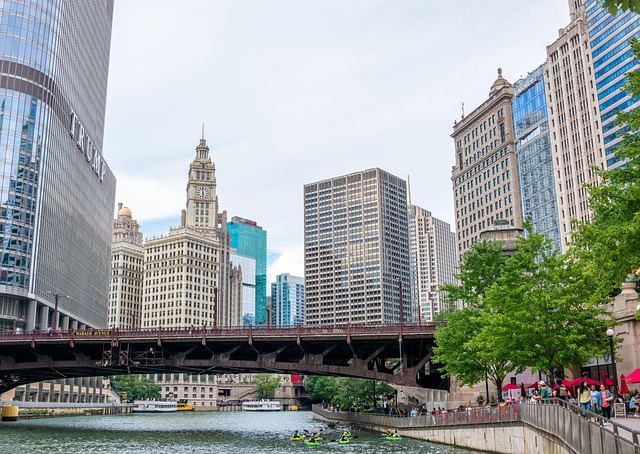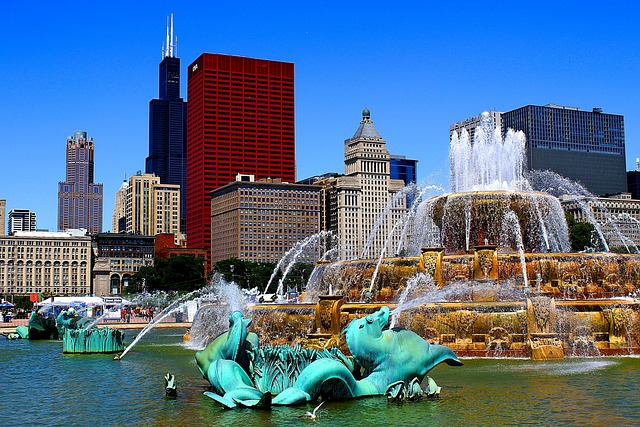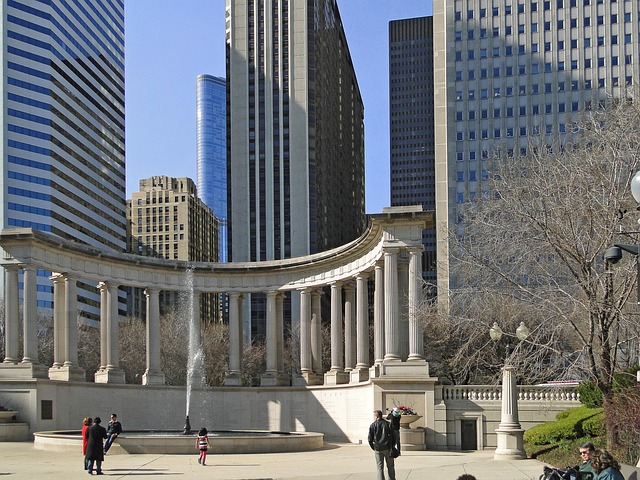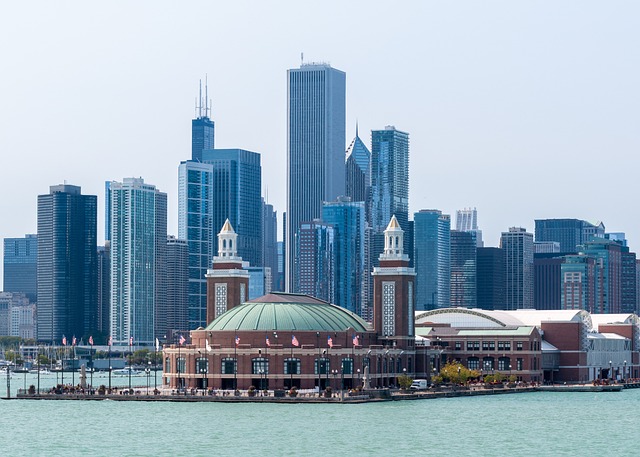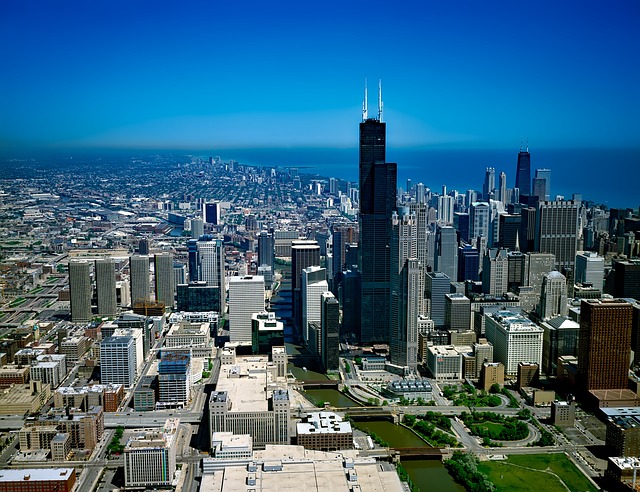Selling a fire-damaged home in Chicago requires careful consideration of property state, damage assessment, and market trends. While visible damage can lower resale value, proper rehabilitation can transform these homes into desirable properties. Engaging professionals, marketing strategically, and navigating legal aspects are crucial steps for successful sales. Understanding neighborhood dynamics, like government incentives and rebuilding efforts, is vital for both owners and investors in Chicago's unique real estate landscape.
“Uncover the intricate dynamics of Chicago’s real estate market, with a particular focus on navigating the challenges of selling fire-damaged homes. This comprehensive guide delves into the city’s unique landscape, exploring key trends and factors driving property prices. We analyze the significant impact of fire damage, offering insights into assessment, repair strategies, and legal considerations.
From neighborhood-specific market analysis to real-life case studies, this article equips you with the knowledge needed to successfully sell a fire-damaged home in Chicago, ensuring a seamless transition in one of the country’s most vibrant cities.”
- Understanding Chicago's Real Estate Landscape: Trends and Factors Influencing Prices
- The Impact of Fire Damage on Property Value: Assessing and Repairing for Resale
- Strategies for Selling a Fire-Damaged Home in Chicago: A Step-by-Step Guide
- Legal Considerations: Insurance, Disclosures, and Regulations in Chicago Real Estate Transactions
- Market Analysis: Demand for Residential Properties Post-Fire Damage in Specific Chicago Neighborhoods
- Successful Case Studies: Overcoming Challenges to Sell a Fire-Damaged Home in Chicago
Understanding Chicago's Real Estate Landscape: Trends and Factors Influencing Prices
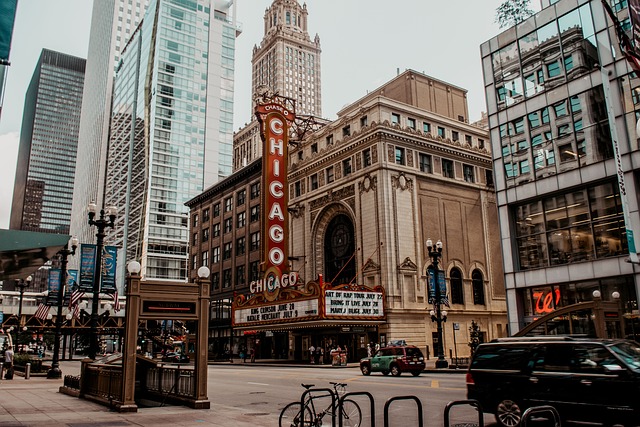
Chicago’s real estate market is a complex tapestry woven with various threads, each influencing property values and trends. One notable factor that can significantly impact prices is the state of the home, particularly after fire damage. In Chicago, as in many cities, selling a fire-damaged property requires careful consideration. The cost of repairs and potential depreciation can deter buyers, leading to lengthy stays on the market or even price adjustments.
However, with proper rehabilitation, these homes can transform into desirable real estate. Many buyers seek out opportunities to renovate and restore, especially in neighborhoods with strong growth potential. This trend highlights a crucial aspect: the Chicago market values both the physical landscape and its historical fabric. Thus, understanding these dynamics is essential for both sellers navigating the process of selling fire-damaged homes and investors looking to capitalize on the city’s unique real estate opportunities.
The Impact of Fire Damage on Property Value: Assessing and Repairing for Resale

Fire damage can significantly impact a property’s value in the competitive Chicago real estate market. When a home suffers from a fire, it leaves visible scars that potential buyers may view as red flags. Assessing and repairing these damages is crucial to ensure a seamless selling process for fire-damaged homes in Chicago.
The extent of damage plays a vital role in determining the resale value. Minor smoke and soot residue can often be mitigated with thorough cleaning, while extensive structural damage or water intrusion from firefighting efforts may require substantial repairs. Property owners should engage professional estimators to assess the scope of work needed for restoration, ensuring that potential buyers perceive the home as a solid investment.
Strategies for Selling a Fire-Damaged Home in Chicago: A Step-by-Step Guide

Selling a fire-damaged home in Chicago requires a strategic approach to navigate the unique challenges and market conditions. Here’s a step-by-step guide to help you through the process:
1. Assess the Damage and Prepare Your Home: The first step is to evaluate the extent of the fire damage. Document everything with photographs and video recordings. Then, begin the restoration process. Repair structural damage, replace burnt items, and restore the home to its pre-fire condition or consider renovations for a competitive market edge. Ensure all safety codes are met to attract buyers who prioritize a safe living environment.
2. Engage a Real Estate Professional: Collaborate closely with a real estate agent experienced in selling fire-damaged properties. They can provide invaluable guidance on pricing, marketing strategies, and navigating the legal aspects. In Chicago’s competitive market, an expert will help you list your home effectively, highlighting its potential and appealing to buyers who understand the value of renovation opportunities.
3. Market Your Property Strategically: Emphasize the property’s unique selling points—whether that’s a prime location, spacious layout, or opportunity for customization. Utilize online listings, social media, and local advertising to reach a wide range of potential buyers. Consider hosting open houses to showcase the home’s improvements and spark interest.
4. Negotiate and Accept Offers: Be prepared to negotiate, as buyers may offer lower prices due to the fire damage. Present any repairs or renovations you’ve completed as evidence of your investment in restoring the home. Remember, a well-presented property can attract offers above the asking price, especially if it’s in a desirable Chicago neighborhood.
5. Conduct Transparent Communication: Be transparent throughout the selling process. Disclose all relevant information about the fire and any ongoing restoration efforts to build trust with potential buyers. Honesty is crucial in establishing a positive relationship with your buyers and can lead to quicker sales and better offers.
Legal Considerations: Insurance, Disclosures, and Regulations in Chicago Real Estate Transactions
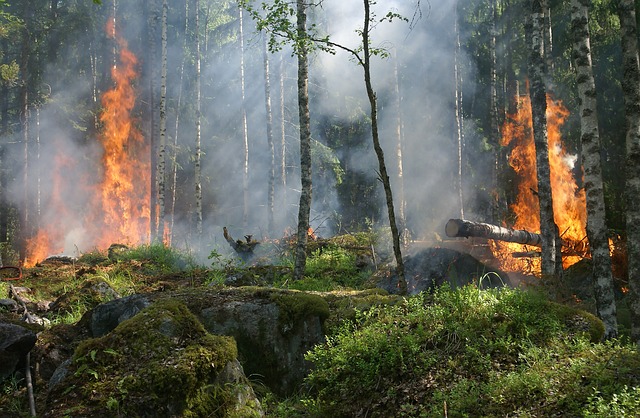
When navigating the Chicago real estate market, especially when considering the sale of a fire-damaged home, understanding legal considerations is paramount. Insurance plays a crucial role in such transactions; both buyers and sellers must be aware of their policies’ coverage and potential implications. In Chicago, specific regulations govern the disclosure of property damage, including fire-related issues, to ensure transparency between parties.
For instance, the city’s laws may mandate that sellers disclose any known fire damage and its extent to prospective buyers. This includes providing details about the cause, time of occurrence, and any repairs or remediation efforts undertaken. Failure to do so could lead to legal repercussions. Buyers, in turn, should review their insurance policies to understand coverage for fire-damaged properties and potential limitations or requirements before finalizing the purchase.
Market Analysis: Demand for Residential Properties Post-Fire Damage in Specific Chicago Neighborhoods
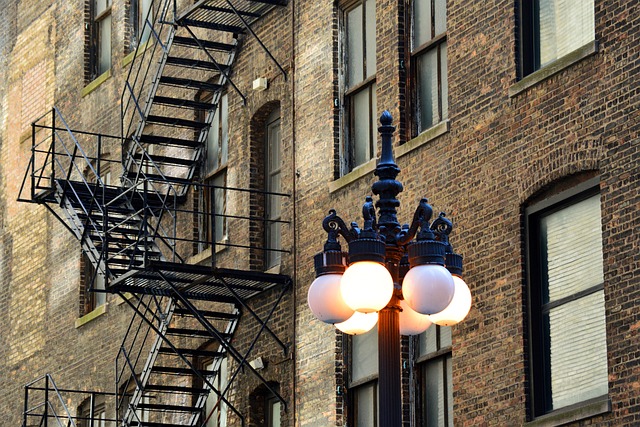
In the aftermath of a fire, the Chicago real estate market often faces unique challenges and dynamics, particularly in affected neighborhoods. The demand for residential properties post-fire damage can be a complex interplay between rebuilding efforts, community resilience, and the allure of historic areas. Neighborhoods like Lincoln Park, known for its charming architecture, might witness increased interest from buyers seeking to restore and revive fire-damaged homes, contributing to a vibrant local real estate scene.
Additionally, factors such as government incentives for rebuilding, insurance adjustments, and the availability of construction resources can significantly impact the selling of fire-damaged properties. As Chicago continues to adapt and recover from these incidents, understanding market trends becomes crucial for both property owners and investors looking to navigate the complexities of buying and selling in these specific neighborhoods.
Successful Case Studies: Overcoming Challenges to Sell a Fire-Damaged Home in Chicago
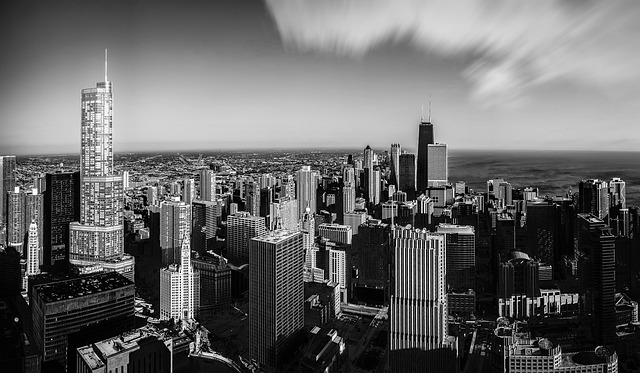
Selling a fire-damaged home in Chicago can be a challenging task, but successful case studies prove that it’s possible to overcome these obstacles and secure a sale. One such example highlights a property owner who faced the daunting task of selling their home after a severe fire. The first challenge was evident—the visual impact of the damage could deter potential buyers. However, the homeowner and their real estate agent worked together to focus on the property’s potential rather than its immediate state. They emphasized the quality of Chicago’s real estate market and the city’s resilience, positioning the home as a unique opportunity for renovation and personal touch.
Through strategic marketing and honest disclosures, they attracted buyers who appreciated the raw potential of the space. This approach allowed for a successful sale, demonstrating that even fire-damaged homes can find new life in the competitive Chicago real estate market. It’s all about presenting the property’s story and highlighting its future possibilities.
Chicago’s real estate market, characterized by diverse neighborhoods and dynamic trends, presents unique challenges for homeowners facing fire damage. This article has navigated through key aspects from understanding market influences to legal considerations, providing practical strategies for selling a fire-damaged property in Chicago. By examining case studies and analyzing demand in specific areas, it’s clear that while challenges exist, successful resale is achievable. Remember, when navigating the complexities of selling a fire-damaged home in Chicago, thorough assessment, strategic marketing, and compliance with legal requirements are essential steps towards a positive outcome.
